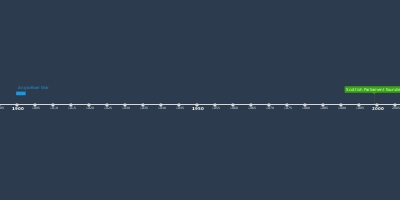feb 15, 1939 - "September 1, 1939"
Description:
W. H. Auden wrote “September 1, 1939” during the first two days of World War II. As the title suggests, the poem centers on the outbreak of the war. More importantly, however, it assumes a critical stance in regards to the causes and perpetrators of “The unmentionable odour of death” which, according to Auden, are political neutrality and the corruptions of government. Interestingly enough, Auden’s work imitates W. B. Yeat’s “Easter, 1916” in both structure and “plot.” The stanzaic form is similar and, like Yeats’s poem, Auden’s tone shifts from one of condemnation and frustration to quasi-optimism. For instance, in the first stanza, the narrator describes himself as “Uncertain and afraid / As the clever hopes expire / Of a low dishonest decade,” yet in the final stanza, he aligns himself with “the Just” in his attempt to “Show an affirming flame” in a world that is corrupt and morally lost. One of the poem’s most famous lines -- “We must love one another or die” -- contributes to Auden’s concluding message of hope, as he seems to offer a “remedy” to the evils of the modern world. This text is important in a political context because it challenges and questions what Auden calls “the State” and showcases the fallibility of the government as an authority figure. The author’s final message on love and hope are of similar importance in a cultural, international context, because it suggests that the amoral modern world as Auden knew it was capable of improvement. “September 1, 1939” remains relevant today, as it was used in Lyndon Johnson’s campaign commercial as well as in his speeches. Additionally, it was read on NPR immediately following the events of September 11, 2001.Added to timeline:
Date:
feb 15, 1939
Now
~ 86 years ago
